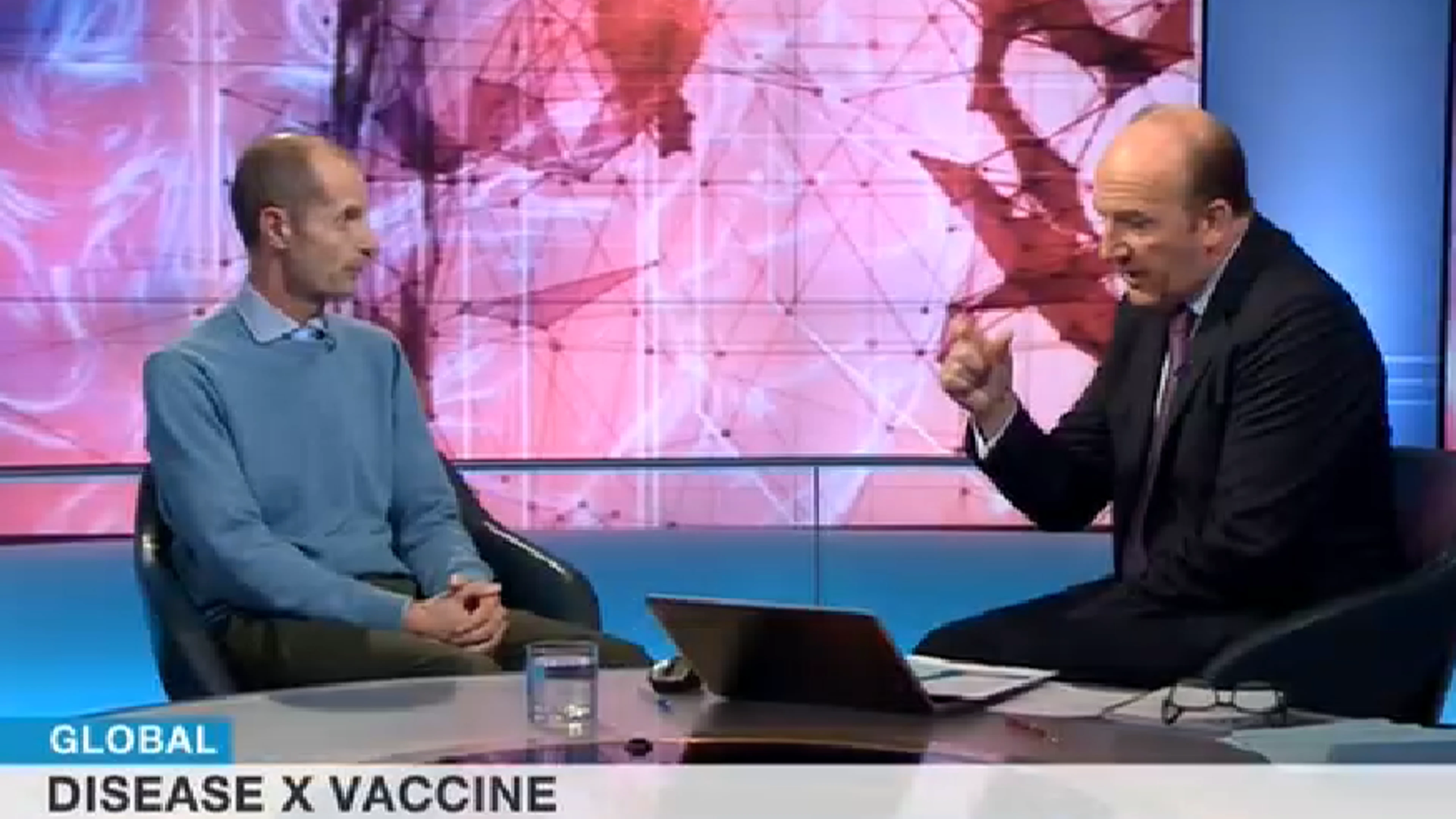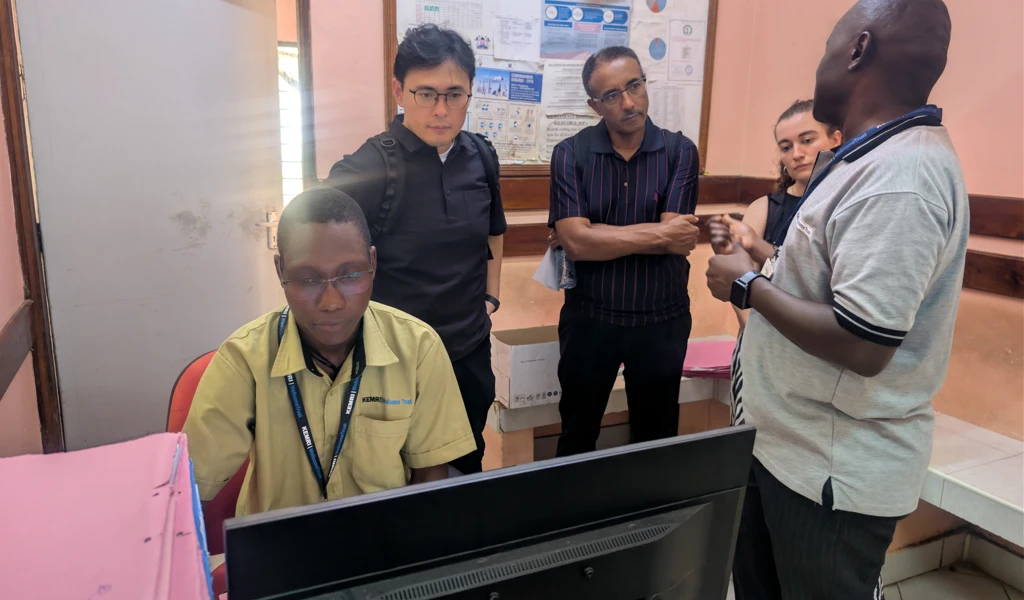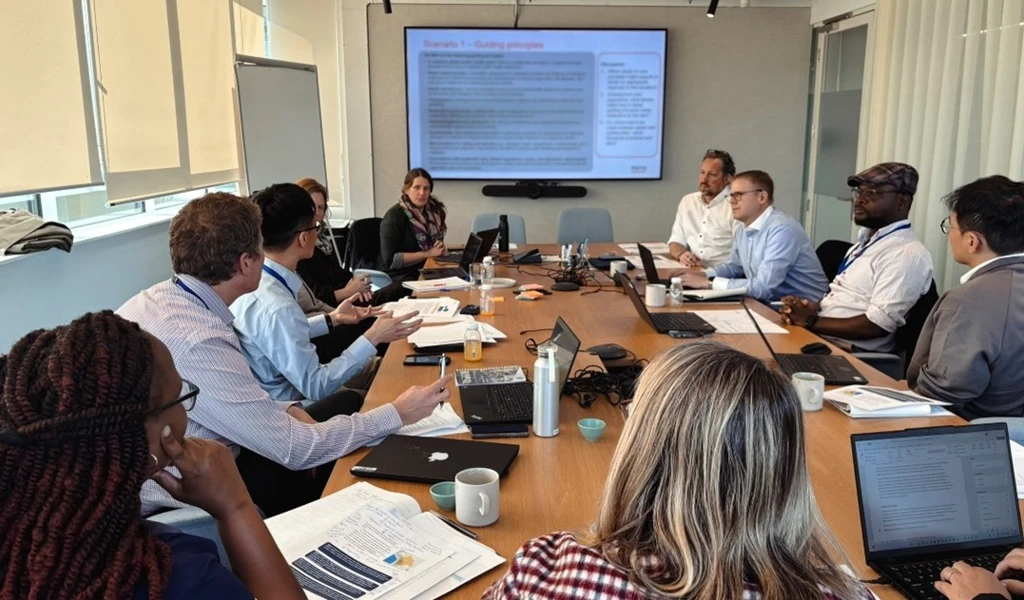Prof Robin Shattock discusses CEPI's new platform tech partnership on BBC News

Last week, Imperial's Professor Robin Shattock featured on BBC World News, discussing CEPI's new partnership with Imperial seeking to develop a rapid-response technology that enables better preparation against Disease X.
In the interview, Robin discusses the challenges around preparing for unknown pathogens and how this transformative platform technology works.
In the interview, Robin discusses the challenges around preparing for unknown pathogens and how this transformative platform technology works.
The partnering agreement, worth up to USD8·4 million, is the first of our CFP2 platform technology announcements. All CFP2 partnerships aim to produce vaccine platform technologies that enable rapid vaccine development, elicit rapid onset of immunity and rapid scale up so that we can quickly respond to outbreaks of unknown pathogens.
Specifically, Imperial will lead a consortium to develop "RapidVac": a self-amplifying RNA vaccine platform that enables just-in-time vaccine production against multiple viral pathogens. The idea behind this approach is for the vaccine to produce an antigen through harnessing the body's own cell machinery — rather than injecting an antigen directly. If successful in developing vaccines for three known pathogens (influenza H1N1, Rabies virus, and Marburg virus), this platform could also then be used for rapid vaccine development during outbreaks of Disease X.
Through RapidVac, we hope to significantly reduce vaccine development times from a matter of years to several weeks, with a 16-week timeframe target from antigen identification through to product release for clinical trials.
Read our press release here.
.webp)

